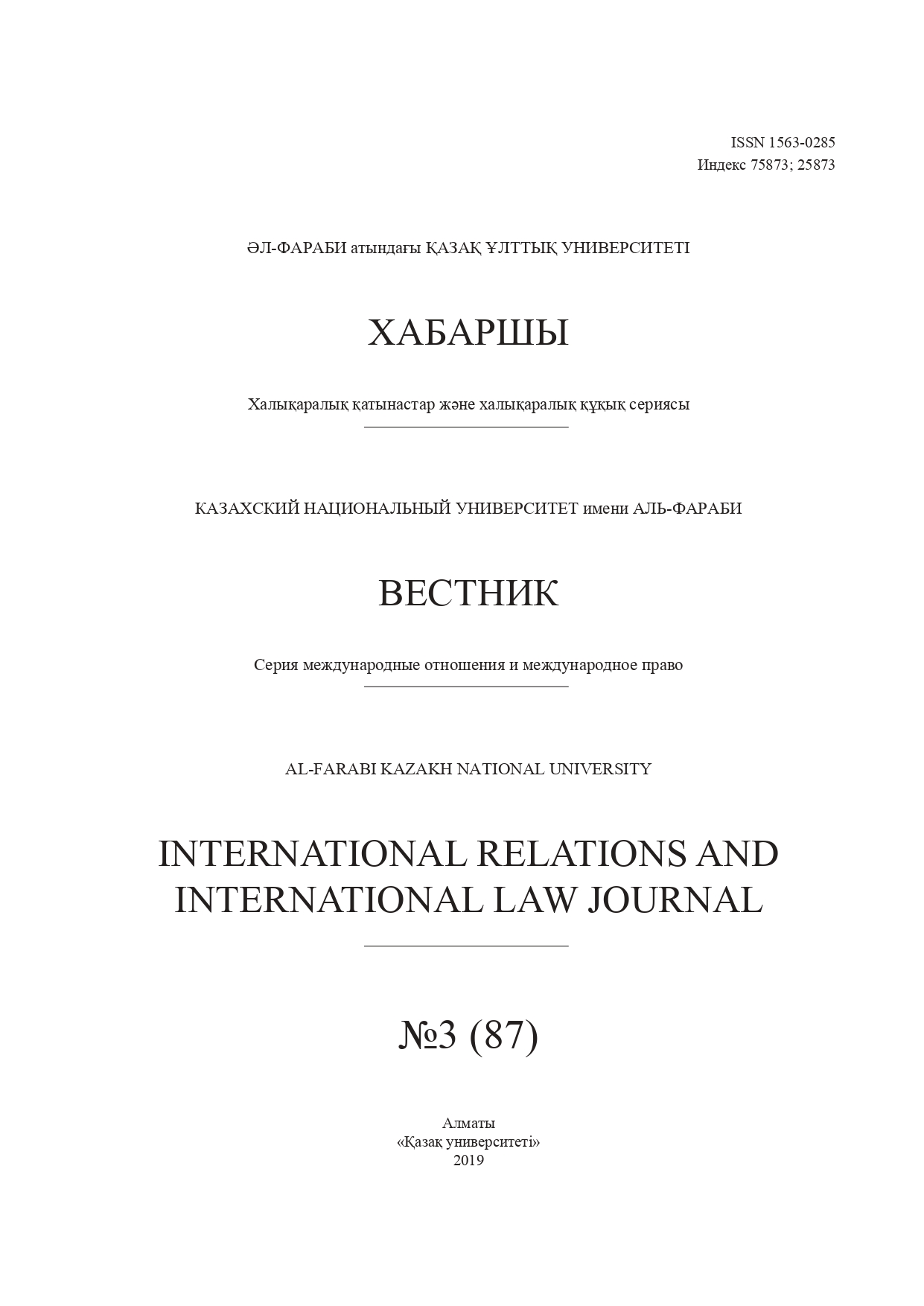Features of the functioning of individual collective institutions in the field of security in the Asia-Pacific region (historical and legal aspect)
DOI:
https://doi.org/10.26577/IRILJ.2019.v87.i3.03Abstract
The article is devoted to the study of the history of the functioning of individual collective institutions that functioned in the Asia-Pacific region in the 1950s–1970s. XX century and the problems of international legal support of military-political security in the region.
At the present stage, the Asia-Pacific region is the axis of a large-scale geopolitical system, connecting diametrically different in terms of the level of development of the state of the region into a single, integrated mechanism of interaction. Under these conditions, Kazakhstan cannot underestimate the importance of this region in terms of political and economic interests. It is also worth noting that the heterogeneity of the space of the Asia-Pacific region in political, economic and cultural terms, complicating the process of creating institutions of regional security, has recently undergone some changes.
The purpose of the article is to show, based on the analysis of international documents, statistical
review, scientific views, and law enforcement practice, the history of the functioning of individual collective
institutions in the military-political sphere and determine the prospects for security in the Asia-
Pacific region in terms of the military-political dimension.
The subject of this study is the mechanisms of operation and activities of some organizations that
functioned in the Asia-Pacific region in the field of military-political security.
The scientific and practical significance of the work lies in the fact that it can be used in law enforcement
activities of the external relations bodies of the Republic of Kazakhstan, in the development of
international legal assessment, and serve as a basis for other similar studies.
Key words: Asia-Pacific region, East Asia, politico-military aspect, UN, regional security.














